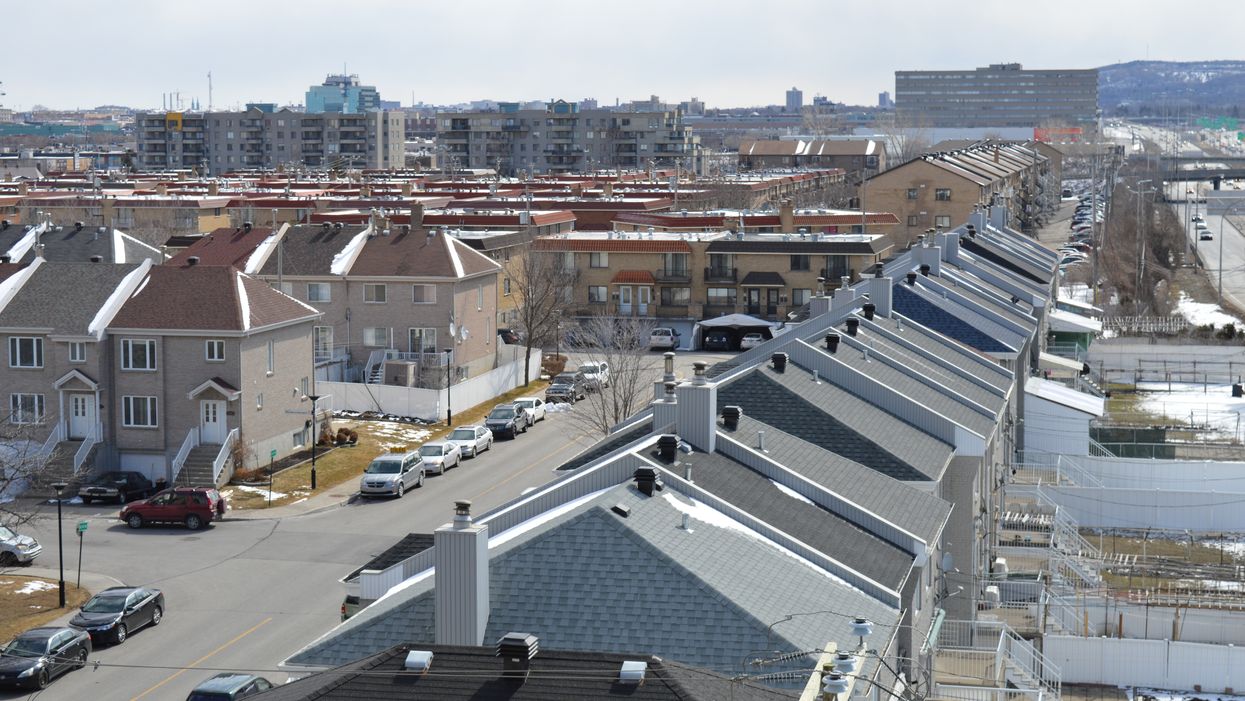Here's Why COVID-19 Is Hitting Some Montreal Boroughs Harder Than Others
Public health data shows that some boroughs in Montreal are more affected by coronavirus than others — areas like this are also called COVID-19 hotspots.
But why is this happening?
Santé Montréal found that the number of people who had the virus in disadvantaged neighbourhoods was two-and-a-half times higher than in affluent neighbourhoods.
In fact, both Santé Montréal and the SHERPA University Institute pointed out that neighbourhoods with higher proportions of "racialized groups" or "cultural communities" are more vulnerable to infection.
A new study by SHERPA digs deeper into some of the reasons behind this phenomenon.
Editor's Choice: Verdun Residents See A Dark Side To Being Named One Of The World's Coolest Neighbourhoods
Social & Economic Factors
According to Santé Montréal data, the top five Montreal boroughs with the highest case counts per 100,000 people, as of October 8, are:
- Montréal-Nord (3,697 cases)
- Rivière-des-Prairies–Pointe-aux-Trembles (2,494 cases)
- Côte-Saint-Luc (2,256 cases)
- Ahuntsic–Cartierville (2,170 cases)
- Mercier–Hochelaga-Maisonneuve (2,148 cases)
Many of these boroughs are known for having lower-income populations as well as higher concentrations of diverse ethnic communities.
In Montréal-Nord, almost half the population is a visible minority and immigrants make up 40% of the borough's inhabitants.
According to SHERPA, first-generation immigrants, including asylum seekers and other migrants with undefined statuses in Quebec, are more likely to have lower incomes and live in cramped or overcrowded housing.
The Institute states that it's particularly difficult for families to practice social distancing or isolation to prevent transmission of the coronavirus when living in small spaces.
Professional Status
The high case count in underprivileged communities can also be attributed to the use of public transportation, as well as cramped or "hot" work environments without appropriate protective equipment, according to the study.
The Institute found that immigrants and women asylum seekers, mostly from Haiti and sub-Saharan Africa, are largely over-represented in positions in Quebec's health sector.
Marginalized health workers are at high risk of infection from COVID-19, particularly as patient attendants in long-term care centres for the elderly (CHSLDs) and hospitals.
The Institute says many members of "cultural communities" have contracted COVID-19 at work and, at times, have passed it on to family members or neighbours.
The study also showed that racialized workers, especially in non-unionized workplaces, worry about the consequences of refusing to work and the possibility of finding new work.
Language Barriers
On March 31, the Ministry of Health and Social Services (MSSS) issued a directive stipulating that screening and health care related to COVID-19 must be offered free of charge to anyone living in Quebec.
However, the directive was only issued in French. The health information lines (811 and the line designated for COVID-19) also only offer services in French and English.
According to the study, it took almost two months from the start of quarantine before official multilingual fact sheets concerning COVID-19 health precautions were disseminated by the city's public health department.
The study also reported several cases where allophones (non French or English speakers) who called information lines failed to obtain advice or be referred for screening because of language barriers.
The study cited cases where people who believed they had symptoms were told, either on the Info-Santé line or in screening clinics, they needed a RAMQ card to access testing.
As a result, there have been cases where asylum seekers and people without medical insurance have been reluctant to get tested or have been denied access to testing.

